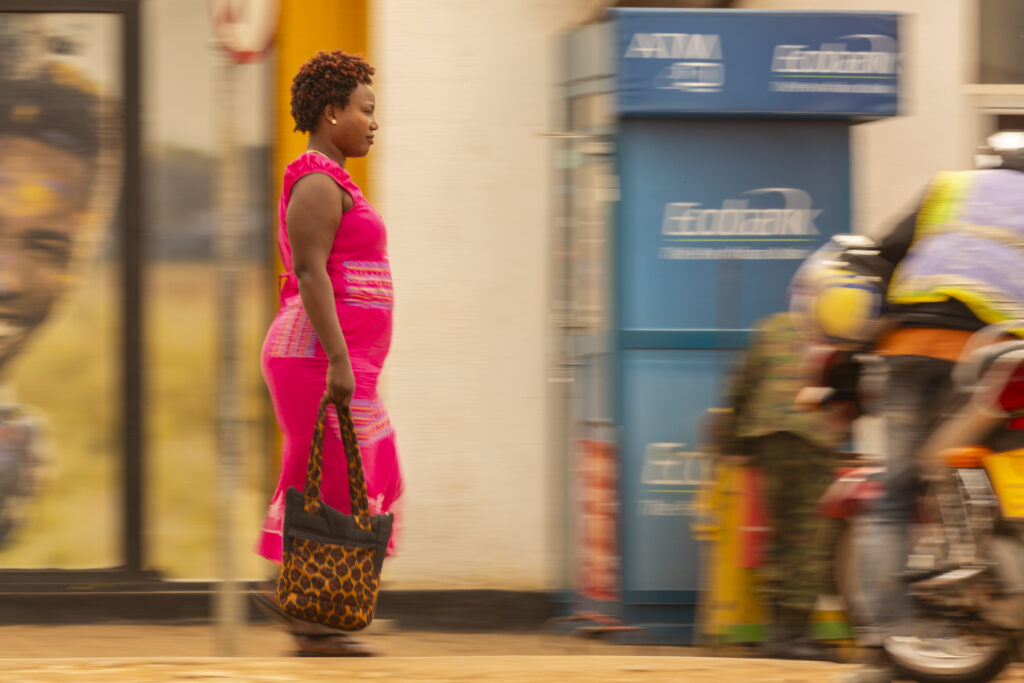The recent presidential election in Rwanda saw Paul Kagame receive 99.18% of the vote on a 98% turnout. Those are figures which seem unbelievable to many people from ‘western democracies’ and predictably have drawn criticism such as Human Rights Watch’s “Kagame’s unprecedented score of over 99% in the election should be seen as a reflection of just how limited political space for the opposition is in Rwanda today” or the BBC’s “His critics say Mr Kagame’s thundering majorities come as no surprise as he rules with an iron hand.”
But what was it really like to be in the country in the four weeks running up to the election and what was it actually like to vote?
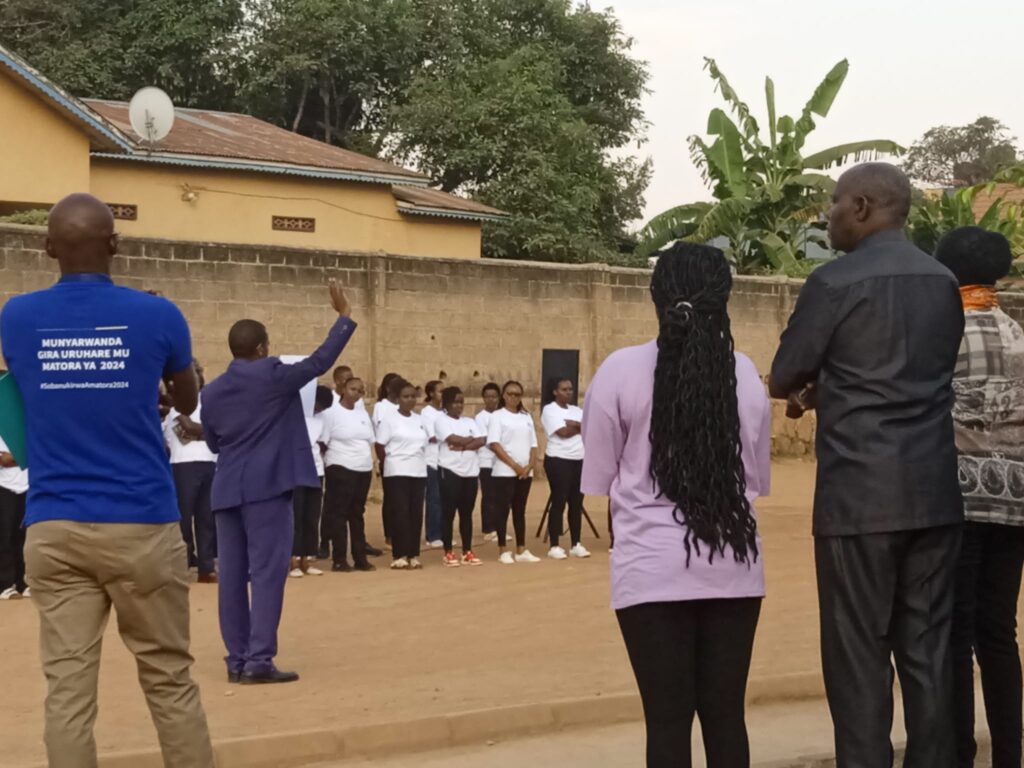
The presidential campaign went on like a celebratory party over the four weeks we were there before the vote. All kinds of flags, caps, car stickers and T shirts adorned the people. Massive rallies of tens and sometimes hundreds of thousands of people took place all over the country. Convoys of buses containing flag waving singing Rwandans made their way to the rallies. The last rally on the outskirts of Kigali drew an estimated almost 500,000 people. There was absolutely no coercion to attend those rallies, the people flocked to them solely because they wanted to show their support for Kagame.
I asked numerous people about the election and the answer was always a vote for Kagame because of the safety, security and unity he had brought to the country. ‘Why on earth would we vote for anyone else?’ was the common response. The people of Rwanda simply love Kagame because of what he has done for the country. I never detected the slightest hint of fear driving that vote. Although the visual support for Kagame dominated the banners and flagpoles of Rwanda I did see a large banner for another candidate, Habineza, at a prominent road junction in Kigali and noticed it was left undisturbed throughout the weeks we were there. The English language daily newspaper, the New Times, carried full summaries of ALL the Presidential candidates visions for the country and reported, with pictures, rallies for all three of the candidates.
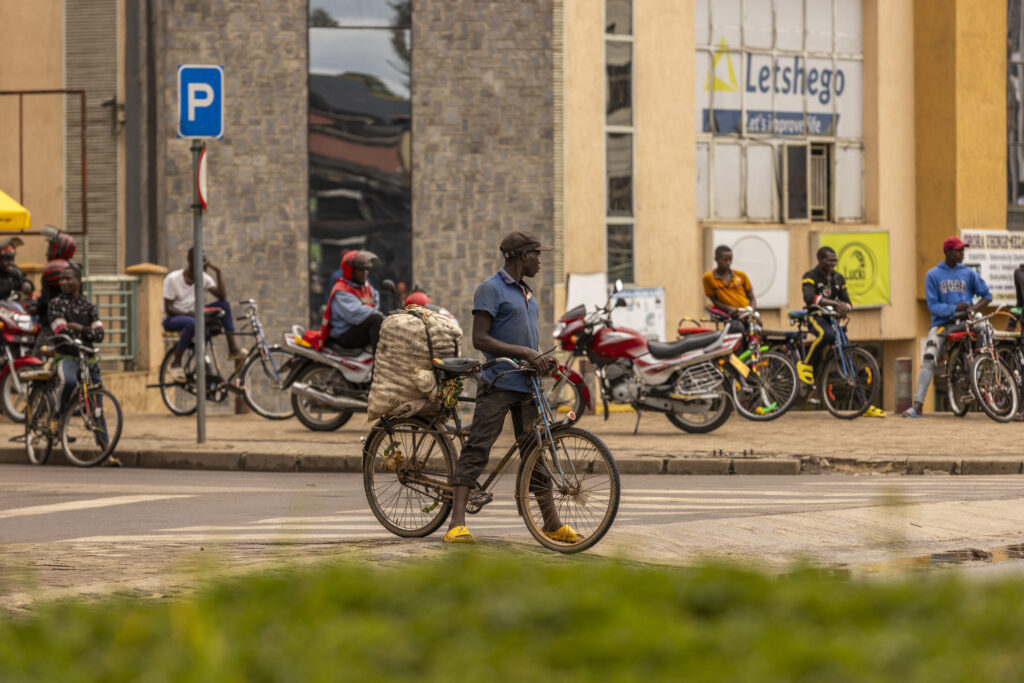
Three candidates were standing for the presidential election – Frank Habineza of the Democratic Green Party of Rwanda and independent candidate Philippe Mpayimana as well as Kagame. Of course, some western media outlets spoke of the barring of ‘presidential aspirants, including the president’s most vocal critics’. There is a stringent process in place in Rwanda requiring 600 signature endorsements, with at least 12 signatures from eight districts and the provision of criminal records. The media, including the UK press, persistently ignores the electoral due process of Rwanda and also presents convicted criminals with links to the ex-genocidal forces still based in Congo as ‘opposition politicians.’
It would be fair to say, however, that open debate of policy, has taken time to flourish in Rwanda. Kagame talks of governing by consensus. This simply means that if his vision for the country is endorsed by the people, then the country should gather round that vision. As opposition politicians have adopted a more positive attitude to that vision and expressed their own policy agenda in more collaborative terms the political space ensuring a united country has opened up more. It is a strategy designed to ensure security and unity in a country where such things are understandably the priority.
With having a Rwandan passport and being classed as an ‘Umunyarwanda’, I was eligible to vote.
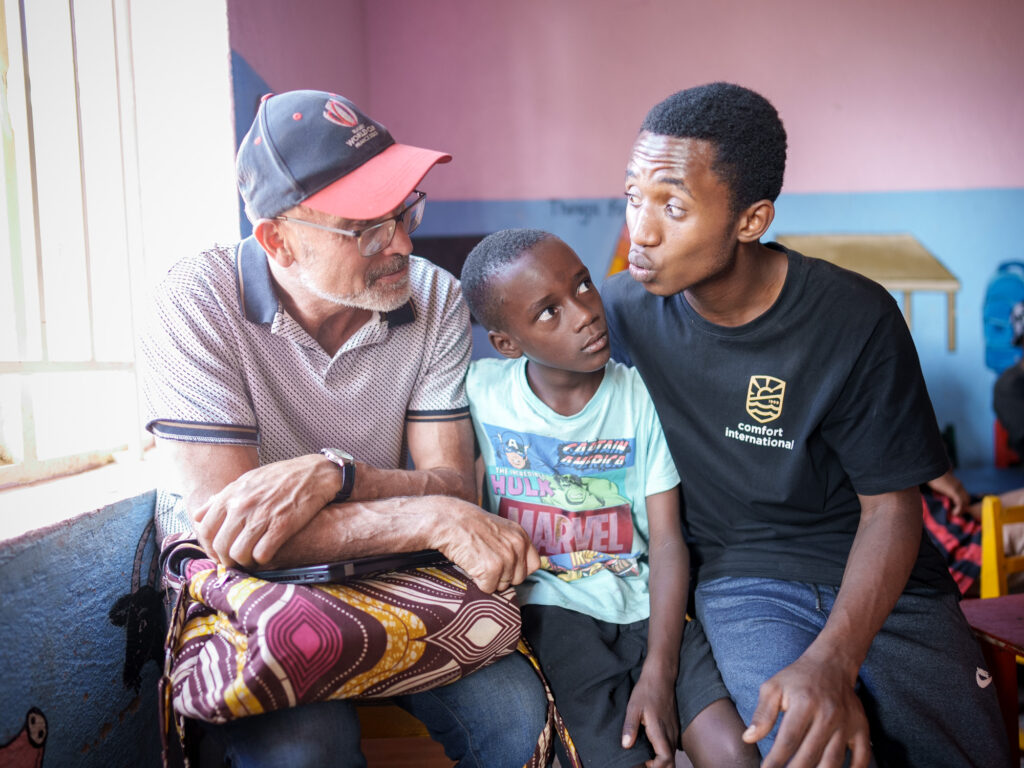
The local polling station was at a primary school just round the corner and on polling day (15th July) I made my way round to vote. It was not dis-similar to our own set up except that in true Rwandan style there was loud music blasting out! There was no campaigning outside or inside the school compound and in the whole process I experienced nothing whatsoever that remotely concerned me as to a free and democratic vote. As I waited I checked with an election official if it was OK to take pictures and was assured as long as they were outside the voting classrooms that was fine.
At just before 7am the election overseer for the voting station gathered all the election officials together in the school playground. Raising his hand to God he pledged to operate the election in a fair and integrous manner, bearing the full consequences of any breach of integrity should he fail to do so and pledging this before God. The election officials then raise their hands to God and, repeating the words after the election overseer, pledged the same. I could see in their eyes they meant every word.
As the election officials then entered the various classrooms being used for the different ‘umudugudu’ in the ‘cell’ which was voting at Kinunga school, one of the election officials helpfully checked my umudugudu (the location of the guest house), my name (the umudugudu was split into two classrooms depending on the first letter of your surname) and put me in the right queue. At that point I was delighted to be greeted by our good friend and colleague, Samuel Kayinamura, bishop of the Free Methodist Church in Rwanda and presently President of the World Free Methodist Church Council. He is a lovely man and very kindly introduced me to the election official on the door of the classroom who then checked my passport and sent for the correct form to log my details. Samuel’s whole family was there and he was enthusiastically there to vote, saying, ‘we have to vote’. When I checked my understanding that voting was not compulsory he answered, ‘no, it is not compulsory, but we know it is our duty for our country’. It’s the way everyone feels – the 98% turnout is simply the consequence of a people who value their democracy so much and love their country so much they would not consider not turning out to vote.
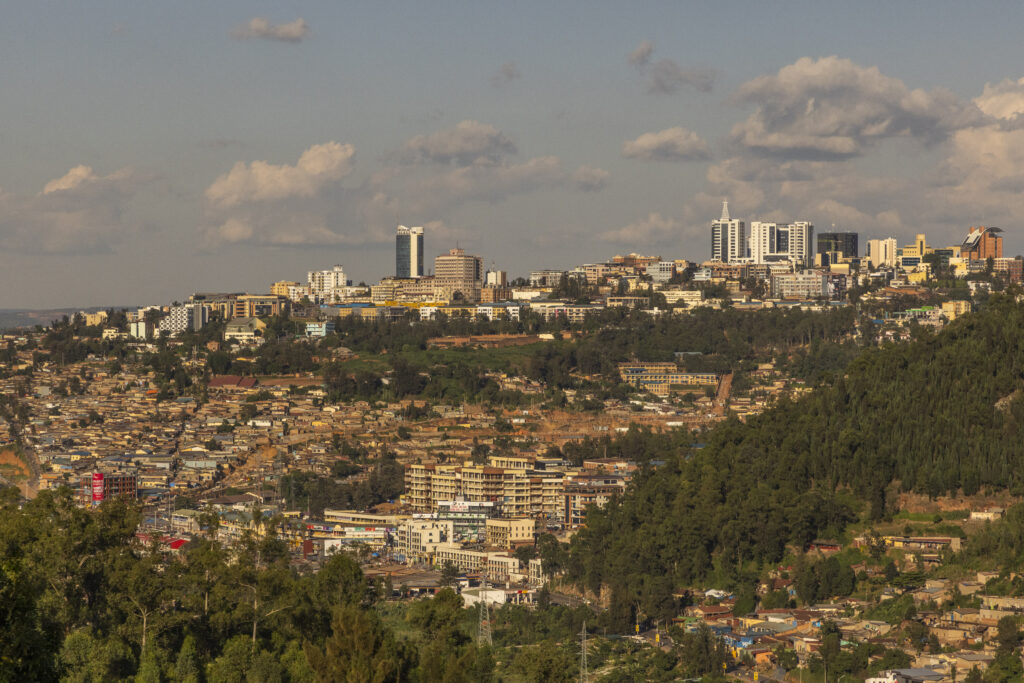
Around 20-30 people were now queuing outside the six classroom doors. Each person had their identity card checked and were let into the room on a 1 in – 1 out basis so that each person had complete privacy in the voting process.
There were also parliamentary elections taking place at the same time and after popping the ballot paper in the secured box I was given a new ballot sheet with the names of the political parties standing (no specific candidates) and directed to the other side of the classroom behind another screen. Fifty-three seats are decided this way with twenty seven selected through local and national councils which elect twenty-four women to ensure gender balance, two youth representatives and one disabled representative. The government cabinet itself is drawn from across represented parties ensuring all represented parties have a role in government.
Once again there was complete secrecy for my vote to be written down and then deposited in another secure box. I was then directed to a table just before the exit and had my pinkie daubed with red dye to mark me as having voted. It was a joy to be part of the process!

